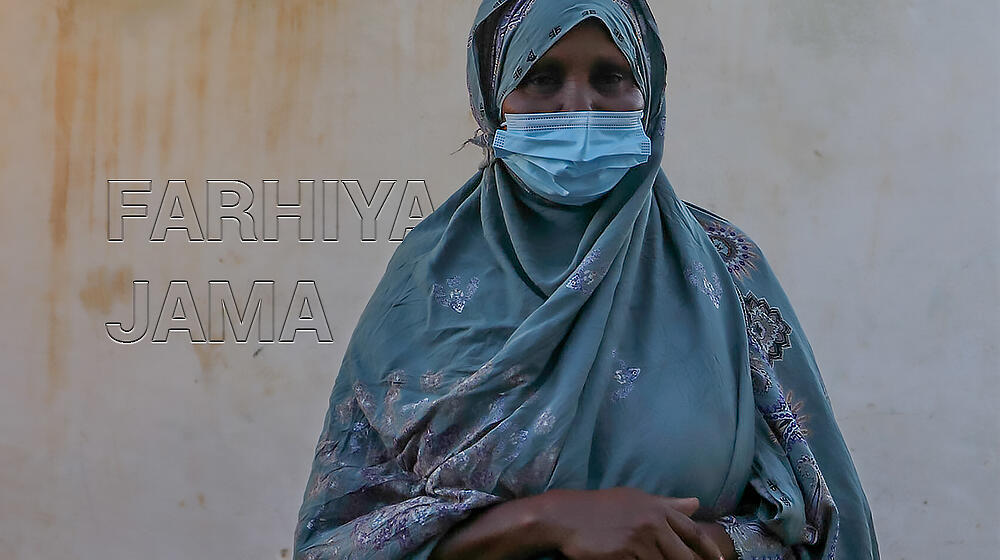Farhiya Jama is a 42-year-old resident of the Bilan camp for Internally Displaced Persons (IDP) in Garowe. She is a mother of three daughters and an activist leading her community in the fight to end Gender Based Violence (GBV).
“When most people hear the word 'violence' they think of direct physical violence against a victim. Although this can be very true, there are a variety of other behaviors that are identified as violence,” says Farhiya. “As a survivor of many forms of violence, I know firsthand how difficult it is to see the problem when you aren’t educated enough or when you were taught from a young age that all of this is normal or that it is a cultural practice,” she continued.
Farhiya participated in one of the UNFPA-supported capacity strengthening programs, provided by Y-PEER Puntland’s facilitators and volunteers who are trained on Female Genital Mutilation (FGM) and GBV awareness. “I’ve learned through the program that one of the best ways to deliver a message that invoke emotions is through stories,” says Farhiya. “People care and relate when the person talking to them have been through what they are speaking of and who have survived.”
“Just like 99 per cent of Somali women, I’ve been subjected to FGM, a pain that I swore I’ll never subject any of my daughters to”, says Farhiya. “When I was thirteen I was married off to an older man, and in those first five years of marriage I suffered enough trauma to last me a lifetime. I had three miscarriages, was abused verbally, financially and sometimes physically, and because of the type of FGM I was put through, I lost too much blood during my first labour. When I had my daughters, I was afraid that they will have the same unfortunate fate as me if we remained in that environment, so I moved away,” Farhiya explains.
Today, she spends her days raising awareness in different IDP camps in Garowe, helping survivors of GBV to reach out to the right people for support.
“There are a lot of organizations and individuals aiming to end all forms of GBV and other harmful practices in Puntland, and who are ready to help survivors and the society as a whole, but a lot of times people don’t reach out to outsiders for help,” Farhiya explains. “It is easier to ask for help when the person is part of the community, so when girls and women come to me asking for help, I direct them to the appropriate organizations and shelters, and I make sure that they receive the support they need,” she continued.
Y-PEER Puntland considers Farhiya to be one of the bravest souls that the organization has worked with: she is an influential individual in her community; an agent of change; a great mother who raised three daughters; and a powerful woman who is fighting for the rights of other women.
“I believe that being a woman is difficult everywhere around the world,” says Farhiya. “Women are subjected to violence in developed countries too, and Somalia is no different. Certain forms of violence are so normalized that even speaking about it is wrong. I know that my efforts to end GBV seems like a drop of water in the ocean, but being able to help a single individual is a great achievement. I am happy and proud to have helped many women by educating them on forms of GBV, and I will continue to do so,” Farhiya concludes.


